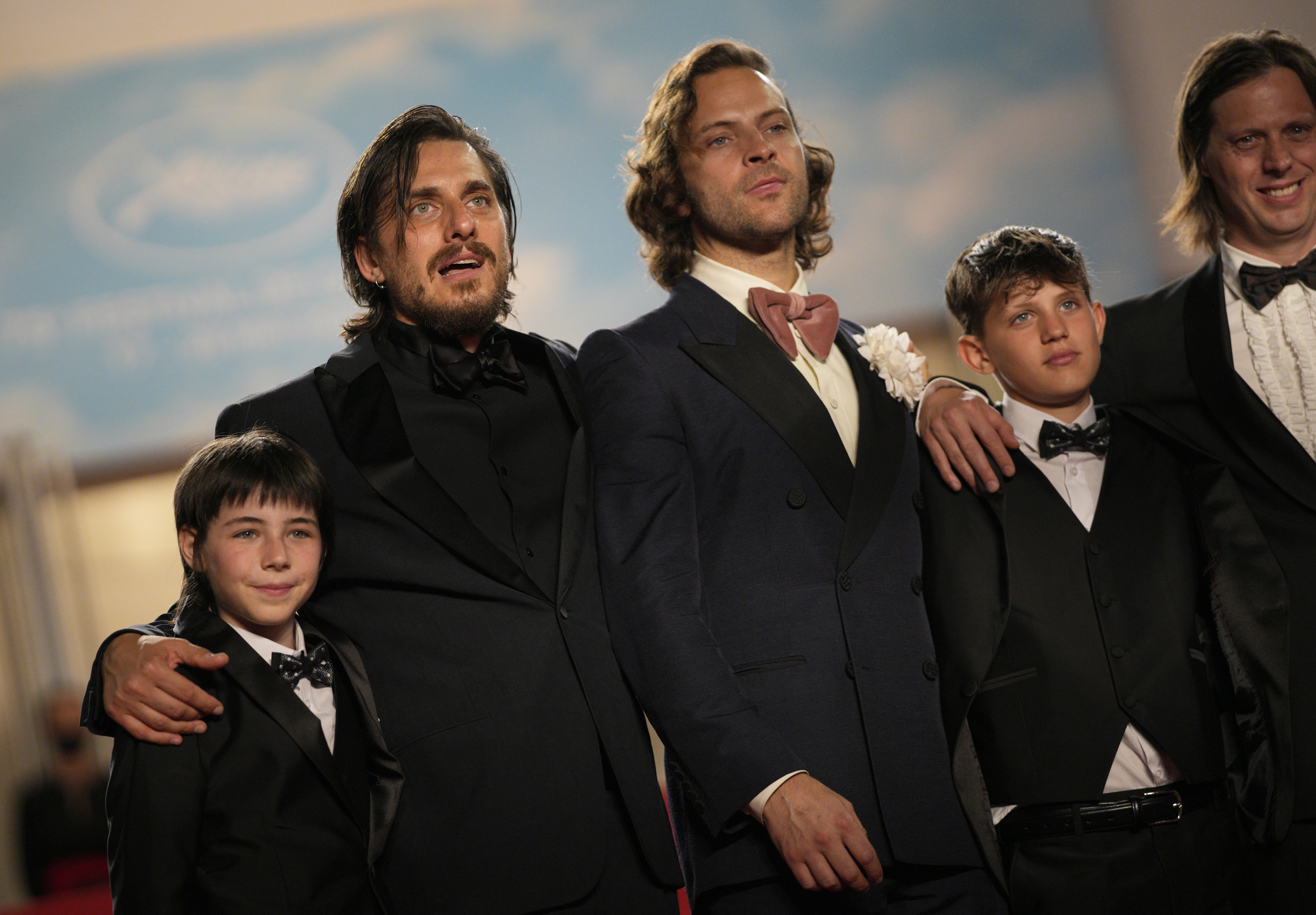Inauguration Cannes starts happily between celebration and plagiarism with 'Corten!'
Cannes Film Festival The Cannes Film Festival kicks off and its director defends it against accusations of discriminating against female directors, of being a Russophile, of being a censor and of being sold out to Hollywood
Kirill Serebrennikov
says
that what most attracted him to Tchaikovsky is its immensity.
Tchaikovsky does not fit.
"He's just a universe. He's huge. He's a Russian genius, but he belongs to European culture... And yet his life is a real mystery," he comments.
Something similar could be what best defines the film by
Felix Van Groeningen and Charlotte Vandermeersch
.
'The Eight Mountains'
tells of the friendship of two men in the middle of the Alps.
And it is precisely the immensity of the stage, its subjugating rotundity, that occupies everything with the same clarity with which it hides everything.
The more obvious the more confusing, the more transparent the less recognizable.
And up to here, and not to extreme the metaphors, the coincidences between the two films in competition.
The most anticipated, that of the only Russian in competition, is one of those that are determined to break everything: the universal blockade of everything that comes from Putin, the taboo on the life of the brilliant composer of '
Marche Solennelle
' and the limits, if is that he once had them, from melodrama.
Let's say that in the exaggeration of it is found justification, condemnation and even penance.
The film reveals exactly what the title
'Tchaikovsky's Wife' announces
(Tchaikovsky's wife) and stops at the secret life of a hidden woman.
She was defenestrated in life and directly erased after her death when the Russia of the Soviets gave itself over, as the director himself acknowledges, to cleaning the myth of any trace of lustful capitalist dust.
That the greatest of geniuses was homosexual and dedicated a good part of his existence to humiliating the one he loved so much was a truth, as well as patriarchal, unforgivable and unbearable.
True to his style, the director of affected baroque prodigies such as '
Leto
' or
'Petrov's Flu
' turns each shot into a meticulous choreography of ellipses and bodies that hide at every turn of the camera.
And for every turn, they are reborn.
Few directors so gifted to dazzle and unbalance.
Few filmmakers so prodigious.
Everything revolves around the interpretation of an Alyona Mikhailova always in tension and very close to the miracle.
And there, in her often martyred body a thousand times, the film becomes big and takes on a tragic tone as deep as it is simply black.
It is true that Serebrennikov lives and shoots so aware of himself and so in love with his genius that the film
throws itself into the arms of a virtuosity that is laborious, repetitive and simply burdensome.
In any case, the director's ability to transform taboo into poison or masculinity, in general, into something so tremendously toxic well deserves and justifies each of the ruptures mentioned above, including the fact that Cannes has selected a film that tells oligarch Roman Abramovich among his patrons.
Be that as it may, the mystery of the excessive remains, the grace of exaggeration, the perfectly opaque transparency.
Lupo Barbiero, Luca Marinelli, Alessandro Borghi, Cristiano Sassella and director Felix van Groeningen at the presentation of 'The Eight Mountains'.Daniel ColeAP
PERFECT ALPINE MELODRAMA
At his side, the surprise of the day was carried out by the directors
Felix Van Groeningen and Charlotte Vandermeersch
.
From the first of them, we knew of his solo work, always so close to the classic melodrama and always, let's face it, so unsuccessful.
Despite his relative celebrity, neither
'Alabama Monroe'
nor
'Beautiful Boy.
You will always be my son
' went from being a dozen readings of the tragic without giving up a single one of the most mannered clichés.
That is why, and probably because of Charlotte Vandermeersch,
'The Eight Mountains'
is so rewarding .
His facility to offer the flight of two entire lives without fainting and without letting himself slide down the slope of the most common places excites and excites in equal parts.
The success of turning the alpine immensity into a stage larger than life itself only adds to an elegant and clear metaphor.
The actors Luca Marinelli and Alessandro Borghi are this time in charge of taking over from their Russian partner Mikhailova.
Because of her viscerality, because of her forcefulness and because of her well-carried depth.
The tape stops to tell the life of two children who later, with the passage of time, cease to be children.
Often happens.
The former lives in the mountains with his aunt, oblivious to the care of a father who works outside of him and a mother who has ceased to exist.
The second, who only spends the summers in those mountains, goes through life cared for with care by his mother and with tender harshness by his father.
The film follows in the footsteps of the two, but in truth what it portrays is the exact profile of a doubled dissatisfaction.
And eternal.
We could repeat the toxic masculinity from before, but it is not convenient to load luck so much.
'The Eight Mountains'
navigates through two fractured existences prey to a contradiction that could be said to be essential, and
it does so with a sense of emotion, sadness, beauty and rigor that is more than just remarkable.
Again, it is the immense, the unapproachable, that which covers everything.
To insist on the oxymoron: opaque transparency.
The Pythagoreans maintained that the friction of the planets with each other creates a noise that by dint of being deafening ends up being inaudible:
the noise of the spheres
.
Let's say that both
'Tchaikovsky's Wife'
and, above all,
'The Eight Mountains'
sound like that: what ends up disappearing out of proportion.
And so.
Conforms to The Trust Project criteria
Know more
cinema

